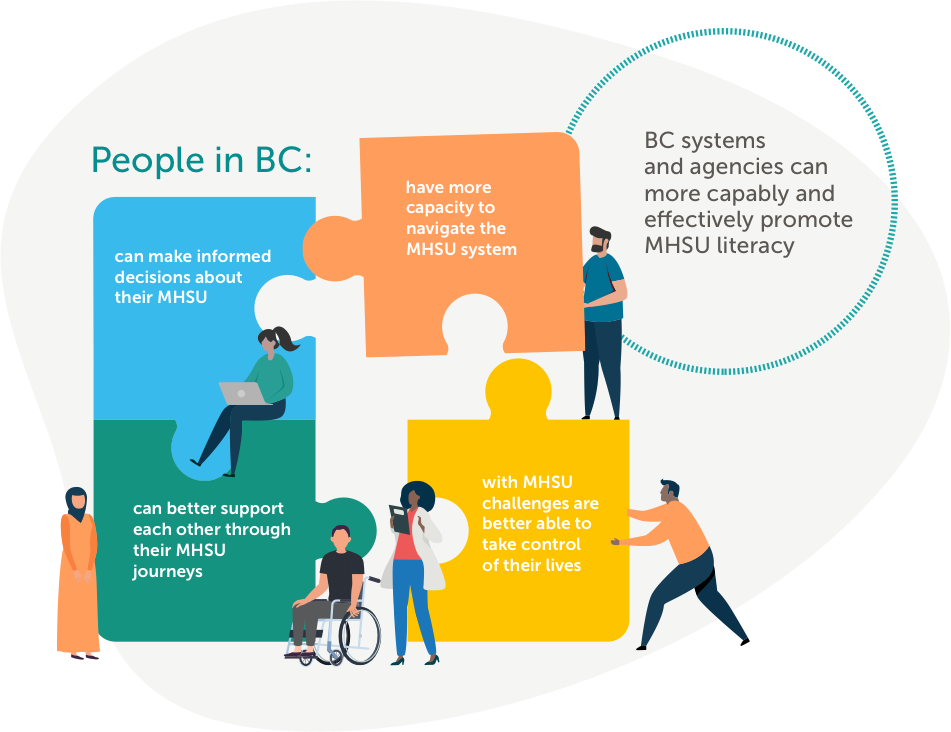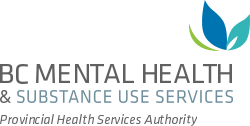Our values
Our impact
We are here to spark province-wide change through our mental health and substance use (MHSU) work. These five statements describe how British Columbians will be different because of what we accomplish together. As a result of our collaborative work, people in BC:

Our approach
These principles inform how we work, and everything we do. We do our best work when we:
Engage people broadly
We are actively, intentionally, and profoundly inclusive.
Use evidence-based practices
Our ways are grounded in systematic inquiry and align with the most trustworthy knowledge and practices of the relevant professions.
Meet people where they are
We listen closely, respond to the unique and varied aspirations of those we serve, and we seek to understand and contextualize through a culturally sensitive lens.
Honour the intersection of science and experience
We integrate science and experience, and balance theoretical and applied knowledge.
Co-create the steps forward with people
We’re building the future with people rather than for people; creating space for people to influence how we design and implement systems and supports for their decisions around mental health and substance use.
Use multiple and varied approaches
We are multi-modal and don’t rely on one particular method or approach, we deploy a variety of interventions to match the variations across our communities, and we seek accessibility for all.
Focus on our collective vision for impact
We are impact-oriented, focused on outcomes and not outputs, and driven by effect instead of just effort.
Exercise our collective voice
We speak with one voice to inform health literacy policies and programming.
Promote reconciliation
We seek every opportunity to advance reconciliation, to right historical wrongs, and restore what was taken, broken, and misused from our original populations.
Six questions
We ask these six questions to assess the quality and fit of any partnership activity:
Is it likely to drive achievement in one or more identified impacts?
Does this represent true partnership?
Is it bold, innovative, and filling a gap or priority need?
Is it provincial or does it reach underrepresented populations?
Is it adaptive, scalable, and sustainable?
Does this represent a broad assessment of available evidence?










